New Report from the NextGen Consortium Shares Path Forward for Paper Cup Recycling in the U.S.
November 01, 2023
Insights include solutions for paper mills, materials recovery facilities, brands and communities to increase recovery of paper cups and reduce waste to landfill
Nov. 1, 2023 — Today, the NextGen Consortium, a leading industry collaboration managed by Closed Loop Partners, with partner brands including Starbucks, McDonald’s, The Coca-Cola Company, PepsiCo, JDE Peet’s, The Wendy’s Company and Yum! Brands, released a report with new findings to accelerate paper cup recycling in the U.S. The report, Closing the Loop on Cups: Collective Action to Advance the Recovery of Paper Cups in the U.S., assesses the role of each stakeholder across the paper cup recovery value chain––including paper mills, materials recovery facilities (MRFs), brands, consumers and local communities––and provides recommended actions to increase paper cup recovery opportunities and advance a more circular system.
Every day, millions of people around the world drink from paper cups. They’re safe, functional and convenient–– so much so that globally, more than 250 billion cups are produced each year. But convenience comes with environmental consequences: the majority of cups end up in landfill today. The NextGen Consortium has taken a three-pronged approach to address cup waste holistically: 1) Advancing reusable cup systems that keep materials in circulation for multiple uses, 2) Exploring material science innovation that enhances the sustainability and recoverability of cup materials, and 3) Strengthening materials recovery and recycling infrastructure that recaptures cups after use.
In this report, the NextGen Consortium focuses on the need to strengthen existing materials recovery and recycling infrastructure systems to recapture more paper cups. Recovering and recycling paper cups ensures the value embodied in paper cups—primarily comprised of fiber and a plastic liner—is recovered, rather than wasted in landfill. These cups contain high-quality fiber that is valuable to paper mills as other paper sources like newsprint and office paper decline. While the challenges for paper cup recovery and recycling are significant, collaboration among various stakeholders involved in paper cup recovery can help address its scale and complexity. The report highlights key challenges and opportunities, including:
- Today, only about 11 percent of communities accept cups in their recycling operations. This poses a significant barrier to cup recycling, as residents have few options to properly recycle their used cups.
- While only a handful of cities in the U.S. are officially accepting cups in their recycling programs, the Foodservice Packaging Institute (FPI) identified more than 30 paper mills that accept paper cups in mixed paper bales representing 75 percent of U.S. mixed paper demand, and an additional five mills accepting cups in carton bales. These mills are taking recovered paper materials, including cups, and reprocessing them into new products.
- In 2023, the NextGen Consortium, in collaboration with FPI and Moore & Associates, identified more than 15 additional mills across North America that are interested in testing cup acceptance or that can process cups today. This new interest is a tremendous endorsement for the work that is taking place and can catalyze cup acceptance at MRFs and in new communities in the months and years ahead.
- Each stakeholder in the value chain has an important role to play in improving paper cup recycling. The report outlines key calls to action, including calling on:
- Mills to conduct recycling tests on paper cups to determine if the fiber can be captured without any negative operational impacts at their facilities;
- MRFs to conduct material flow studies to determine where best to site interventions for cup sortation and to collaborate with mills and communities to expand acceptable recycling lists as more mills accept cups;
- Communities to engage with MRFs and mills to evaluate feasibility of adding cups to accepted recyclables list;
- Consumers to bring their own reusable cups when they can and to check local recyclability options and guidance when using disposable cups;
- Brands to source recycled paper content when procuring their cups and other packaging, among other activities.
“The waste generated from to-go paper cups has become a highly visible representation of our disposable, take-make-waste culture. However, these cups also are a valuable resource with growing opportunities for recovery,” says Kate Daly, Managing Director and Head of the Center for the Circular Economy at Closed Loop Partners. “We know that collaboration across stakeholders––from mills and MRFs to brands and cities––is going to be critical to solving this challenge and ensuring paper cups don’t end up in landfill or polluting our environment. The NextGen Consortium plays a key role in advancing the innovation, testing and partnerships needed to make this possible.”
Since its founding in 2018, the NextGen Consortium has taken a holistic and collaborative approach to addressing the challenge of single-use cup waste, advancing reuse models, exploring material science innovations and strengthening materials recovery and recycling infrastructure that recaptures cups after use. While material reduction and reuse are key pathways to reduce reliance on virgin resource extraction, end-of-life recovery pathways are equally critical to ensure that the value embodied in all types of cups, including single-use paper cups, is recovered, rather than wasted in landfill.
As the NextGen Consortium works toward its goal of eliminating foodservice packaging waste, it will continue to work to improve and align recovery and recycling infrastructure across the entire value chain, from collection and sortation to processing and strengthening end markets. Collaborative action, data-driven decision-making and iterative testing continue to be critical to closing the loop on a greater diversity and volume of valuable resources and avoiding unintended consequences. The learnings from this report aim to guide the industry towards a future in which reusing valuable materials in products becomes the commonsense norm, shaping a more circular economy.
About the NextGen Consortium
The NextGen Consortium is a multi-year consortium that addresses single-use foodservice packaging waste globally by advancing the design, commercialization and recovery of foodservice packaging alternatives. The NextGen Consortium is managed by Closed Loop Partners’ Center for the Circular Economy. Starbucks and McDonald’s are the founding partners of the Consortium, with The Coca-Cola Company and PepsiCo as sector lead partners. JDE Peet’s, The Wendy’s Company and Yum! Brands are supporting partners. The World Wildlife Fund (WWF) is the environmental advisory partner. Learn more at www.nextgenconsortium.com.
About the Center for the Circular Economy at Closed Loop Partners
Closed Loop Partners is at the forefront of building the circular economy. The company is comprised of three key business segments: Closed Loop Capital Management, the Center for the Circular Economy and Circular Services. In 2018, Closed Loop Partners launched its innovation center, the Center for the Circular Economy, which unites competitors to tackle complex material challenges and to implement systemic change that advances the circular economy. Closed Loop Partners brings together designers, manufacturers, recovery systems operators, trade organizations, municipalities, policymakers and NGOs to create, invest in and support scalable innovations that target big system problems. Learn more about the Center’s work here.
Related posts
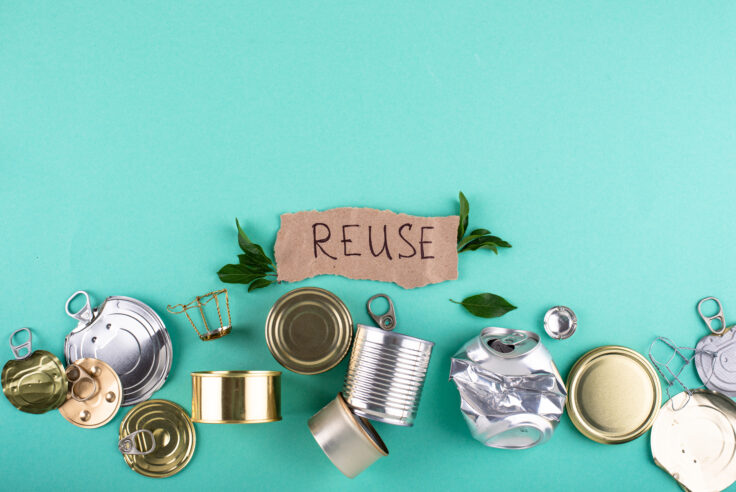
Blog Post
For Reuse to Work, Language Matters
A quick guide to messaging for reuse programs and getting...

Press Release
Closed Loop Partners’ Composting Consortium Launches...
The grant program for composters and communities comes...
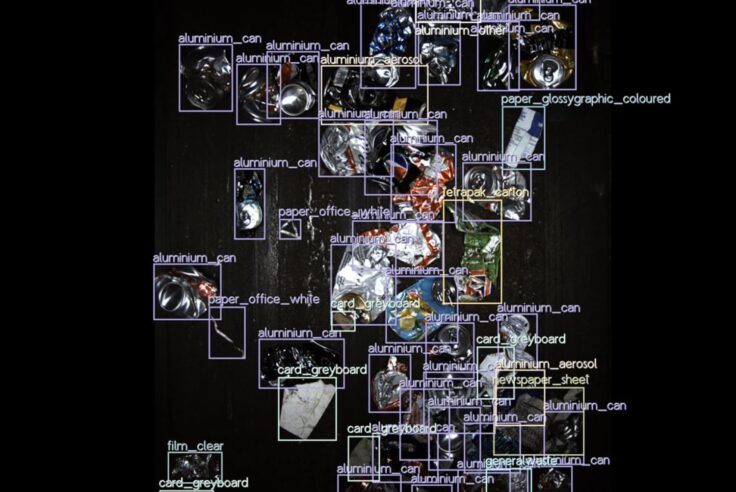
Press Release
New Data Reveals High Quantities of Food-Grade Polypropylene...
Closed Loop Partners’ Center for the Circular Economy...
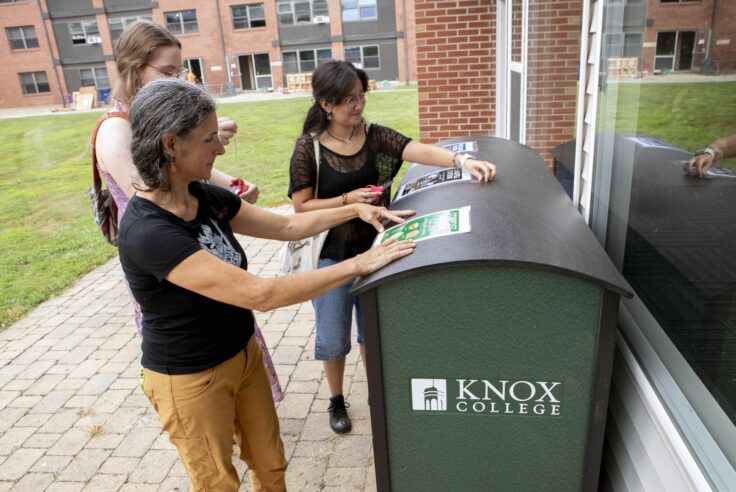
Blog Post
Keeping Compost Clean: Tools to Help Reduce Contamination...
The Composting Consortium interviews EcoProducts to...
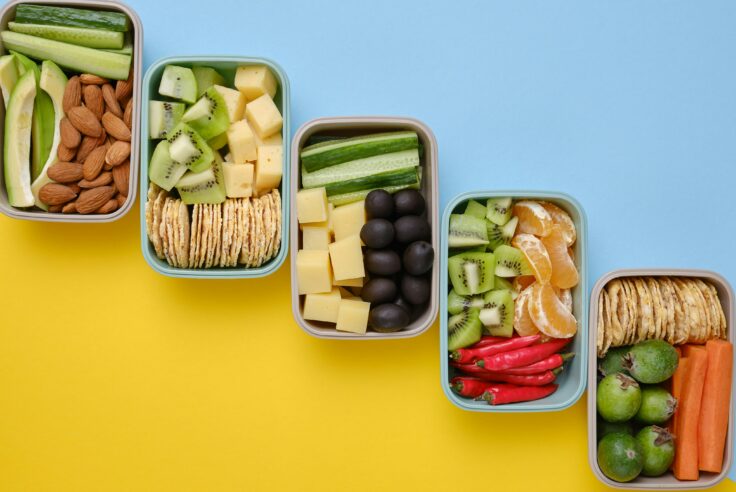
Press Release
Closed Loop Partners and U.S. Plastics Pact Identify...
Packaging types primed for reuse lay the groundwork...
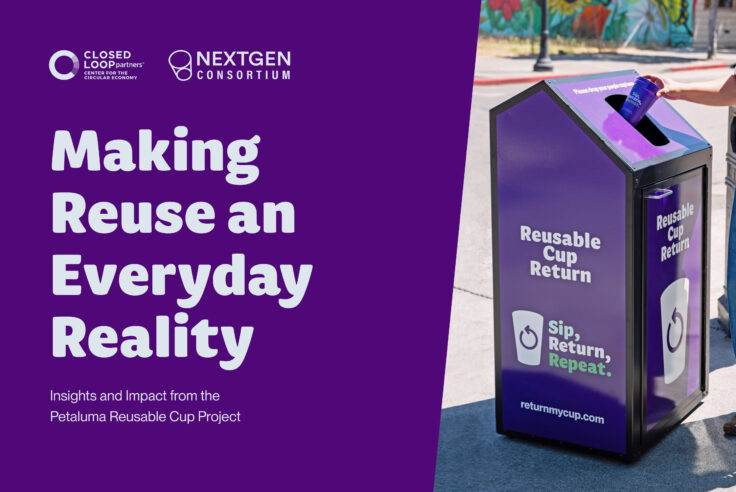
Press Release
Groundbreaking Results From Citywide Petaluma Reuse...
The Petaluma Reusable Cup Project from the NextGen...
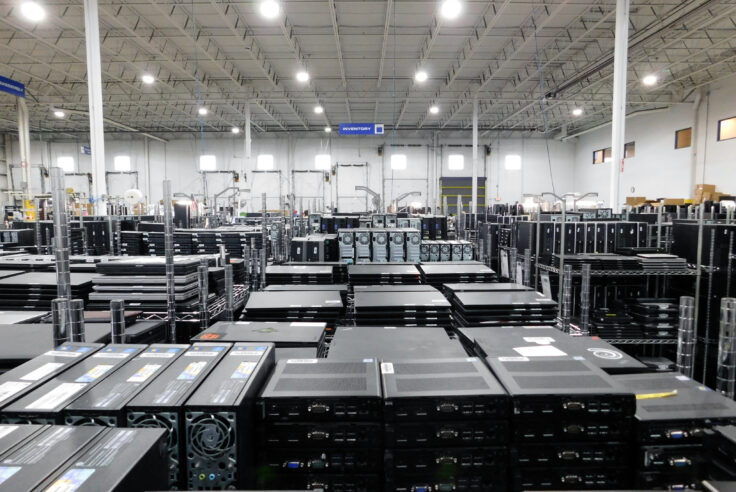
Press Release
Closed Loop Partners’ Portfolio Company, Sage Sustainable...
The bolt-on acquisition scales Sage’s end-to-end...

Press Release
Closed Loop Partners Unveils Groundbreaking Findings...
Closed Loop Partners’ Center for the Circular Economy...
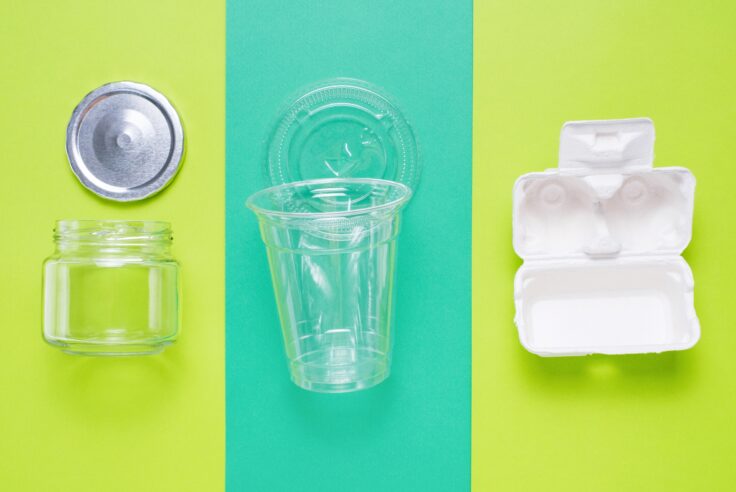
Blog Post
8 Tips to Navigate Life Cycle Assessments for Circular...
Closed Loop Partners’ Center for the Circular Economy...
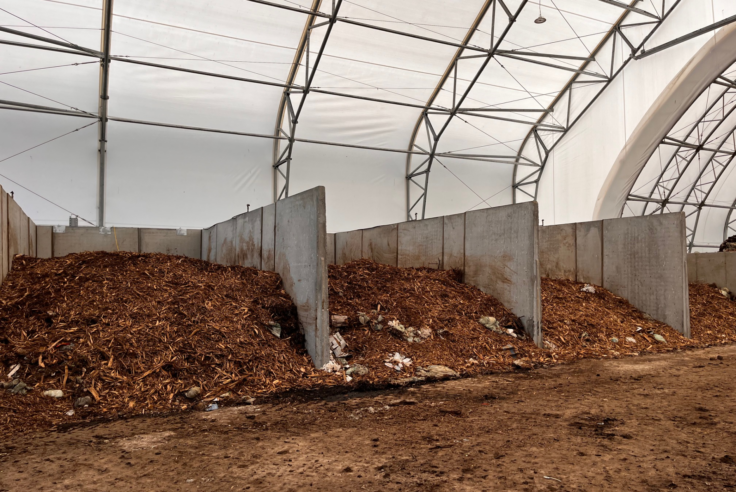
Blog Post
Why More Composters Are Recovering Food Scraps and...
Black Earth Compost and Glacial Ridge Composting Facility...
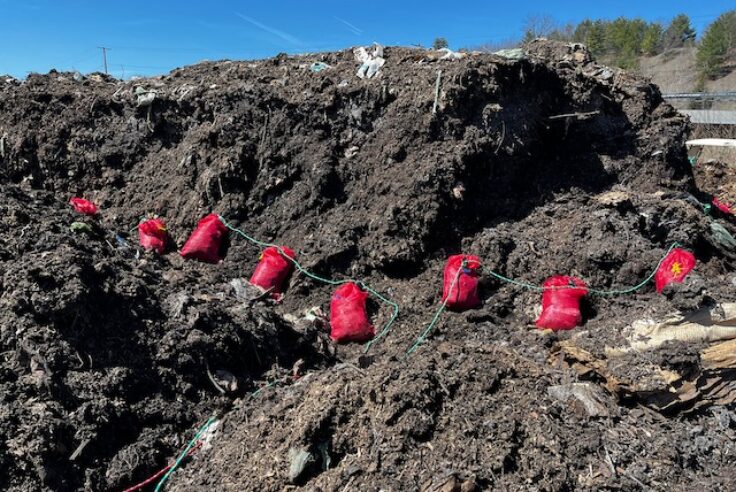
Blog Post
Does Compostable Packaging Actually Turn into Compost?...
In a joint interview, field testing experts, including...
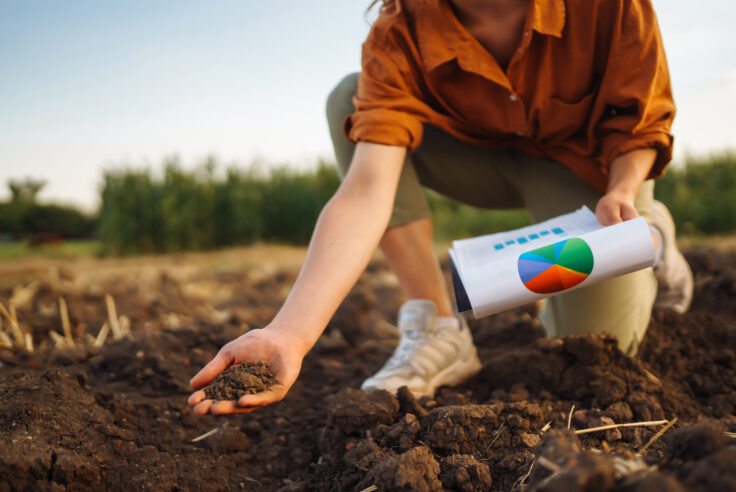
Press Release
Composting Consortium Releases New Data to Compostable...
The new platform by the Compostable Field Testing Program...
